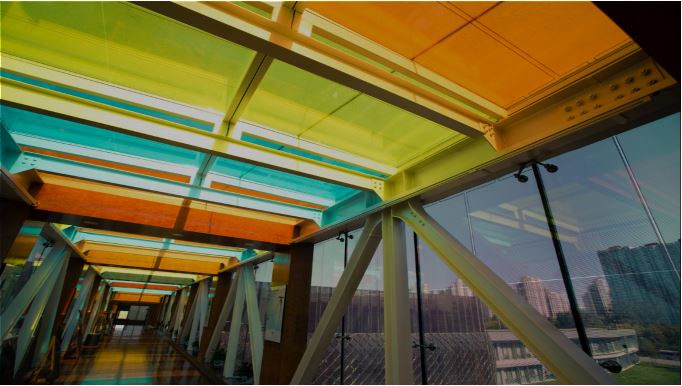What Tests to Consider for the Implementation of Security Glass?
Security glass plays a crucial role in safeguarding people and infrastructure from potential threats like forced entry, ballistic attacks, and explosions. However, not all security glass is created equal, and ensuring its effectiveness requires rigorous testing. These tests assess the glass's ability to meet industry standards for strength, durability, and safety under extreme conditions.
If you're considering implementing security glass in your next project, here are the key tests you should take into account:
1. Impact Resistance Testing
Impact resistance is a fundamental requirement for security glass. This test evaluates the glass's ability to withstand blunt forces such as hammer blows, kicks, or thrown objects. Standards like EN 356 and ASTM E2395 define the levels of resistance based on various impact scenarios.
Why it matters:
Impact-resistant glass is essential for locations prone to vandalism or break-ins, such as retail stores, banks, and government facilities.
2. Ballistic Testing
Ballistic testing measures the glass's ability to stop bullets from firearms. Standards like UL 752 and EN 1063 define ballistic resistance levels, ranging from low-caliber handguns to high-powered rifles. The tests include shooting bullets at the glass from different angles and measuring penetration.
Why it matters:
Ballistic-resistant glass is critical for embassies, police stations, and other high-security zones where the threat of armed attacks is a concern.
3. Blast Resistance Testing
Blast resistance testing assesses how well the glass performs under explosive pressure. Standards such as ASTM F1642 and ISO 16933 simulate various explosion scenarios, measuring whether the glass can absorb and dissipate the force without shattering dangerously.
Why it matters:
Blast-resistant glass is indispensable in airports, government buildings, and transportation hubs, where the risk of explosive attacks is higher.
4. Spall Testing
Spall refers to the fragments of glass or coating that may eject upon impact. Spall testing determines whether the glass will break into sharp pieces that could harm occupants. Non-spall options use special interlayers or coatings to prevent fragmentation.
Why it matters:
Non-spall glass is essential for spaces like prisons, courthouses, and sensitive facilities to prevent injury from flying shards.
5. Forced Entry Resistance Testing
Forced entry resistance tests simulate break-ins to evaluate how long the glass can withstand repeated attempts to breach it. Standards like EN 1627 and ASTM F1233 are commonly used, focusing on resistance to tools such as crowbars, hammers, and axes.
Why it matters:
This type of testing is vital for commercial properties, luxury residences, and retail stores where theft prevention is a priority.
6. Thermal and UV Stability Testing
Security glass is often exposed to extreme weather conditions, so it must withstand thermal expansion, UV rays, and temperature fluctuations without compromising its integrity. This test ensures that the glass remains stable and durable over time.
Why it matters:
Thermal and UV-resistant glass is ideal for outdoor applications and locations with high sun exposure.
7. Acoustic Performance Testing
Although primarily designed for security, glass in sensitive environments like airports or high-end offices may also require soundproofing. Acoustic performance testing measures the glass's ability to block noise while maintaining security features.
Why it matters:
Acoustic-rated security glass ensures a quiet and secure environment in noise-sensitive areas.
8. Durability and Lifecycle Testing
Durability tests simulate prolonged exposure to environmental factors such as moisture, salt spray, and chemicals. This testing ensures the glass can maintain its performance and appearance over its lifespan.
Why it matters:
Durability is critical for long-term installations, reducing the need for frequent replacements and repairs.
Choosing the right security glass involves more than selecting a product; it’s about ensuring the glass has been rigorously tested to meet the highest standards of safety and performance. From impact and ballistic resistance to blast and spall testing, every aspect of security glass must be scrutinized to guarantee its effectiveness.
At FG, we understand the importance of these tests in creating a safer world. Our security glass solutions are subjected to the most stringent testing standards, ensuring unmatched reliability, durability, and performance. Partner with FG for your next project and experience the assurance that comes with our world-class expertise and cutting-edge glass technology. Contact us today to discuss your security glass requirements!

You might also like
Feb 21, 2022 by TARIQ KACHWALA
Feb 21, 2022 by TARIQ KACHWALA
Feb 23, 2022 by TARIQ KACHWALA









